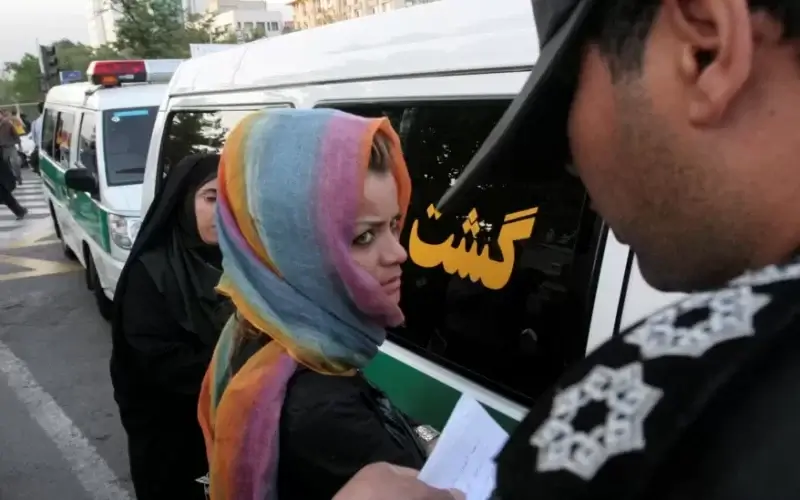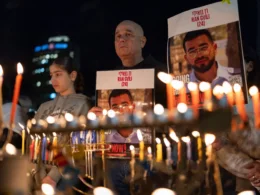Amidst the sixth week of nationwide unrest and widespread arrests in Iran, new reports on Tuesday revealed that several Western foreigners visiting the country have disappeared, confirming earlier reports that the Islamic Republic is taking foreign citizens hostage. This new development comes as Iranian Supreme Leader Ayatollah Ali Khamenei and Iranian President Ebrahim Raisi continue to blame Western and Israeli intelligence services for inciting protests to overthrow the regime.
According to media reports, an Australian academic named Kylie Moore-Gilbert, who was jailed in Iran from 2018 to 2020 over espionage, confirmed that New Zealand travel bloggers Topher Richwhite and his wife Bridget Thackwray are missing and "believed to be arrested in Iran." Gilbert noted that it had been several months since the husband and wife went missing, adding that the Islamic regime had arrested more than a dozen foreigners in the past six months alone.
"Quiet diplomacy never works to the detainee's advantage in such cases," she said, calling on New Zealand's media to "make some noise" about it.
Earlier in the day, other media outlets reported a Spanish man trekking from Madrid to Doha for the 2022 FIFA World Cup was not heard from since the day after he crossed into Iran several weeks ago. The 41-year-old trekker, Santiago Sanchez, was last seen in Iraq after hiking through 15 countries, sharing his journey on social media over the last nine months before entering Iran, stirring fears regarding his whereabouts.
The issue of Iran taking Americans and Europeans hostage is nothing new for the regime, given its longstanding history of engaging in such actions. Following the Islamic Revolution of 1979, followers of the then-Ayatollah Ruhollah Khomeini seized the United States embassy in Tehran and took several Americans hostage for 444 days.
In the 1980s, the Iranian-backed terrorist group known as Hezbollah engaged in numerous abductions of American, European, and Israeli figures. Today, the Islamic Republic continues to engage in hostage taking, detaining dozens of foreign nationals from Europe and America to obtain concessions from powerful Western governments.
The charges against those who have protested the Islamic government include working for American and Israeli intelligence services and engaging in anti-Islamic activities. Many foreign nationals arrested in Iran face brutal interrogation, torture, and even death if they refuse to say what regime officials want them to repeat or engage in a forced confession of a trumped-up charge.
During the negotiations over the revival of the 2015 nuclear agreement, the Biden administration demanded that Tehran release political prisoners from jail but later opted to negotiate the issue separately. With protests breaking out throughout Iran, American officials have put a freeze on negotiations with Iran and instead are placing sanctions against members of the Islamic Republic.
With protests continuing to increase in Iran over the death of 22-year-old Mahsa Amini at the hands of the Islamic morality police, the regime has tightened its grip throughout the country, deploying security forces, Revolutionary Guards Corps (IRGC) troops, and paramilitary Basij forces. Members of the IRGC and other top security brass have blamed Western governments for inciting protests, calling on followers of the regime to aid security forces in their crackdowns and report individuals who chant the downfall of the Islamic Republic.









